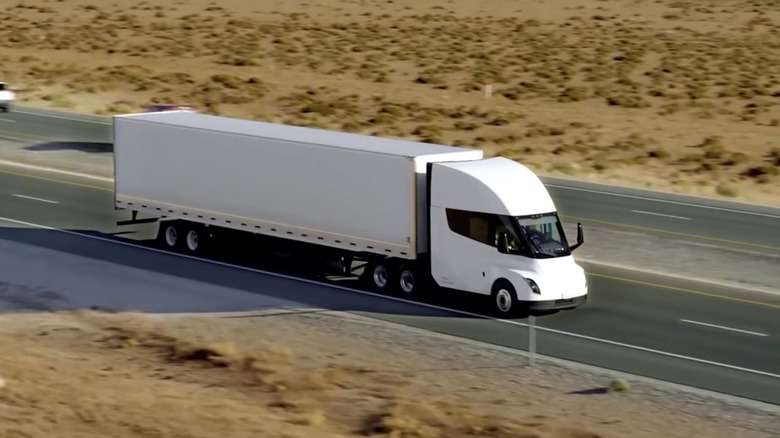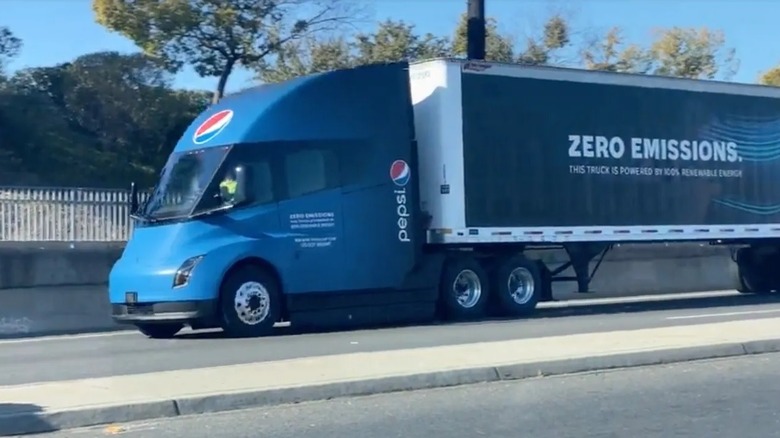How Much Range A Tesla Semi Really Has
Tesla finally delivered its first two truck cabs to PepsiCo on Dec. 1. It has since added another 36 to its fleet, with 15 running routes in Modesto, California, and another 21 in the Sacramento area (via CNN). PepsiCo bought those trucks "outright," along with an additional 100 ordered and expected to hit the streets in early 2023.
PepsiCo is the first big corporation to go all in with Tesla. Still, even with third-quarter revenue of $21.97 billion that beat Wall Street expectations (via CNBC), the mega-corp needed a California state grant totaling $15.4 million, plus a federal subsidy of $40,000 for each vehicle, to help "offset part of the costs." United Parcel Service (UPS) and wholesale restaurant food distributor Sysco also have Tesla Semis on order (via CNBC).
Still, the keywords are "part of" the cost, meaning all those millions it received still didn't cover the entire cost. These rigs aren't cheap. Initially, the Semi had a list price of $180,000 (via Forbes), but that was a very long time ago. Tesla has never updated the pricing, and PepsiCo has remained silent (via CNBC). Non-disclosure agreements can be pesky.
For years Tesla has touted that its fully loaded Semi (with a combined weight of 82,000 pounds) would get an estimated range of some 500 miles on a full charge. Now that we have real-world Semi's out on real-world roads making real-world deliveries, we're starting to get some real-world insights to compare against all that PR spin.
Can Tesla's Semi carry the load?
In an interview with Reuters last week, PepsiCo Vice President Mike O'Connell stated all of its trucks were of the 500-mile variety, not the shorter-range 300-mile trucks, and they planned on using them for seven years (one million miles). He also confirmed that savings over the cost of operating conventional big rigs would pay them back over that duration (via Reuters).
O'Connell went on to outline the company is moving Frito-Lay "food products" on routes within a 425-mile range, while trucks carrying the heavier PepsiCo soda cans were confined to shorter routes within 100 miles. He did confirm that after hitting the 425-mile mark, there was still about a 20% charge on the battery, and it took approximately 35 to 45 minutes to recharge fully (via Reuters).
It makes sense for the company to take things slow to test out the capabilities of its new Semis. The other thing to consider is how PepsiCo and Frito-Lay set up their intrastate distribution systems. Perhaps soda products are stored and routed differently than lighter food products.
Oliver Dixon, a senior analyst at the consulting firm Guidehouse, thinks Tesla still has "a lot to prove" to commercial distribution fleets (via Reuters) because "dragging a trailer full of chips around is not the most intense, tough ask."
Until Tesla starts providing concrete facts about the Semi, we'll have to take the 500-mile range at face value or surmise what we can from the companies using them.

